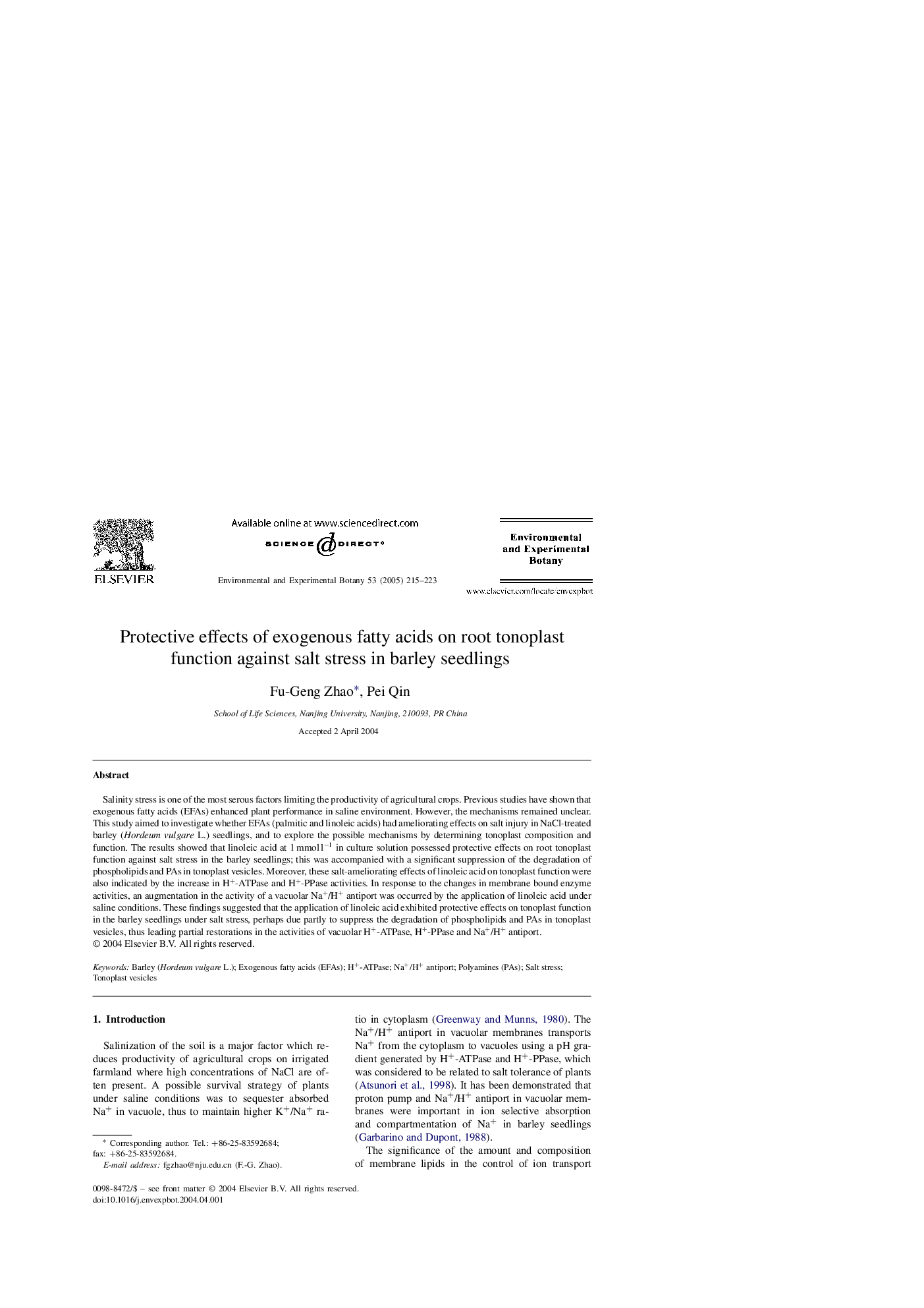| Article ID | Journal | Published Year | Pages | File Type |
|---|---|---|---|---|
| 9485651 | Environmental and Experimental Botany | 2005 | 9 Pages |
Abstract
Salinity stress is one of the most serous factors limiting the productivity of agricultural crops. Previous studies have shown that exogenous fatty acids (EFAs) enhanced plant performance in saline environment. However, the mechanisms remained unclear. This study aimed to investigate whether EFAs (palmitic and linoleic acids) had ameliorating effects on salt injury in NaCl-treated barley (Hordeum vulgare L.) seedlings, and to explore the possible mechanisms by determining tonoplast composition and function. The results showed that linoleic acid at 1 mmol lâ1 in culture solution possessed protective effects on root tonoplast function against salt stress in the barley seedlings; this was accompanied with a significant suppression of the degradation of phospholipids and PAs in tonoplast vesicles. Moreover, these salt-ameliorating effects of linoleic acid on tonoplast function were also indicated by the increase in H+-ATPase and H+-PPase activities. In response to the changes in membrane bound enzyme activities, an augmentation in the activity of a vacuolar Na+/H+ antiport was occurred by the application of linoleic acid under saline conditions. These findings suggested that the application of linoleic acid exhibited protective effects on tonoplast function in the barley seedlings under salt stress, perhaps due partly to suppress the degradation of phospholipids and PAs in tonoplast vesicles, thus leading partial restorations in the activities of vacuolar H+-ATPase, H+-PPase and Na+/H+ antiport.
Related Topics
Life Sciences
Agricultural and Biological Sciences
Ecology, Evolution, Behavior and Systematics
Authors
Fu-Geng Zhao, Pei Qin,
